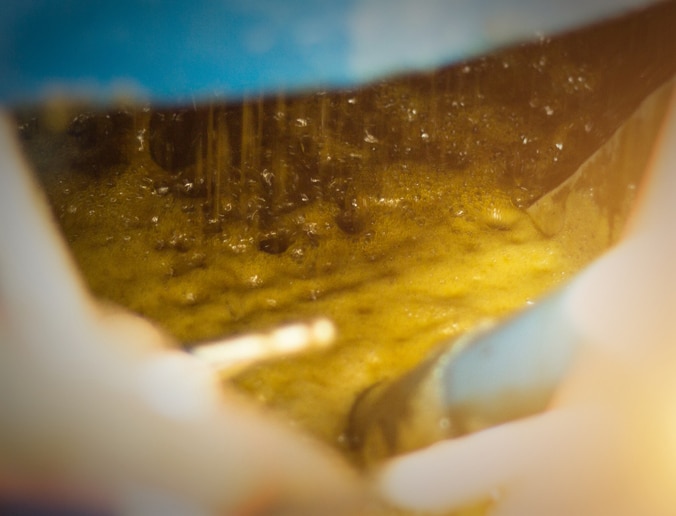What happens to used cooking oils once businesses dispose of them? Some of them leak and go to the sewers, then into bodies of water. This means that used oil leaks and spills stay in the water and can wreak havoc on aquatic life. And, even if used oil spills don’t reach bodies of water, they might clog sewage pipes.
Fortunately, transportation networks that deal with used oil are available nationwide. Companies collect used oil from restaurants and food manufacturing facilities and properly process the used oil for use in other industries.
Don’t Throw Out Your Used Cooking Oil
There are millions of restaurants and food manufacturing facilities across the country and many of them use cooking oil in some way or another to prepare food. However, not all oils get burned or soaked up, especially when frying food.
While restaurants can reuse deep-fry oil on a smaller scale, they need to dispose of the batch of oil after a couple of uses. Food fried in used oil doesn’t taste quite the same as when fried in fresh, new oil. What’s more, used cooking oil can get contaminated and cause forms of food poisoning.
So, restaurants and other facilities have no other choice but to dispose of used oil. But, of course, if you own a restaurant or similar establishment, you cannot simply dump the gallons of oil you use down the drain. Thus, companies that collect spent oil relieve you of having to ensure proper disposal yourself.
As we stated earlier, the collected quantities of used oil can be repurposed into other useful products. They can be used to create fuel, lubricants, soaps, cleaning products, and more.
Used Oil Management and Repurposing: How It Works

While used oil can be hazardous when released into bodies of water, it isn’t managed like hazardous waste. Instead, the Environmental Protection Agency (EPA) has provided facilities with Used Oil Management Regulation, which serves as a guide to the handling and management standards for used oil.
The EPA’s management standards apply to different types of businesses or facilities that handle used oil, including:
Collection centers and aggregation points
These are facilities that accept small amounts of used oil from multiple sources. They store used oil until there is enough to ship it somewhere else for processing.
Transporters
Transporters are similar to collection centers, except they pick up used oil from different sources and deliver the waste product to recycling facilities.
Re-refiners and processors
These are facilities that remove contaminants from used oil to prepare it for reuse. According to the EPA, their used oil management standards primarily focus on this group.
Used Oil Storage Requirements
- All tanks and containers utilized for used oil storage must be clearly labeled with the words “Used Oil”
- Used oil must never be stored in anything other than tanks and storage containers or storage units that are specifically for storing regulated hazardous waste,
- Tanks and storage containers must always be in good condition. Used oil handlers cannot let them rust, leak or deteriorate. In addition, any structural defects must be fixed immediately
- Used oil must not be mixed with other hazardous wastes
Although these requirements try to ensure that used oil is stored properly and leaks are prevented, it’s also a requirement for used oil handlers to be prepared in case of leaks and spills. For that, the EPA requires handlers to observe the following:
- Take steps to prevent leaks and spills from happening in the first place. All tanks, containers, and machinery used to transfer the oil must always be in good working condition.
- There must always be sorbent materials to soak up spills. The EPA has a list of recommended sorbents, from natural organic and inorganic materials to synthetic ones.
- If a spill or leak occurs, it must be stopped immediately. If the cause of the leak is a structural problem from the container, the oil must be transferred to another tank or container.
- During the cleanup of the spill, the used oil must still be recycled. If that’s not possible anymore, the person in charge must ensure that the used oil that spilled or leaked is not hazardous before disposing of it appropriately.
- Any cleanup materials that are still dripping with used oil must be handled according to the used oil management standards.
- The damaged tank or container must be repaired or removed and replaced immediately.
All of these practices and requirements for managing used oil preserve the oil for repurposing.
The appropriate management of used oil, including processing, recycling, and disposal, prevents the pollution of bodies of water and helps conserve finite resources. What’s more, these practices turn oil into valuable commodities like sustainable alternative fuel.
If you have large amounts of used oil that you need to dispose of, reach out to GF Commodities. We have a nationwide transportation network for the collection of used cooking oil, animal fat, and other by-products. When you transport used oil with us, you will experience a simplified, streamlined and timely service.
Contact Dan Kozubek at 816-812-8685 today to learn more.



